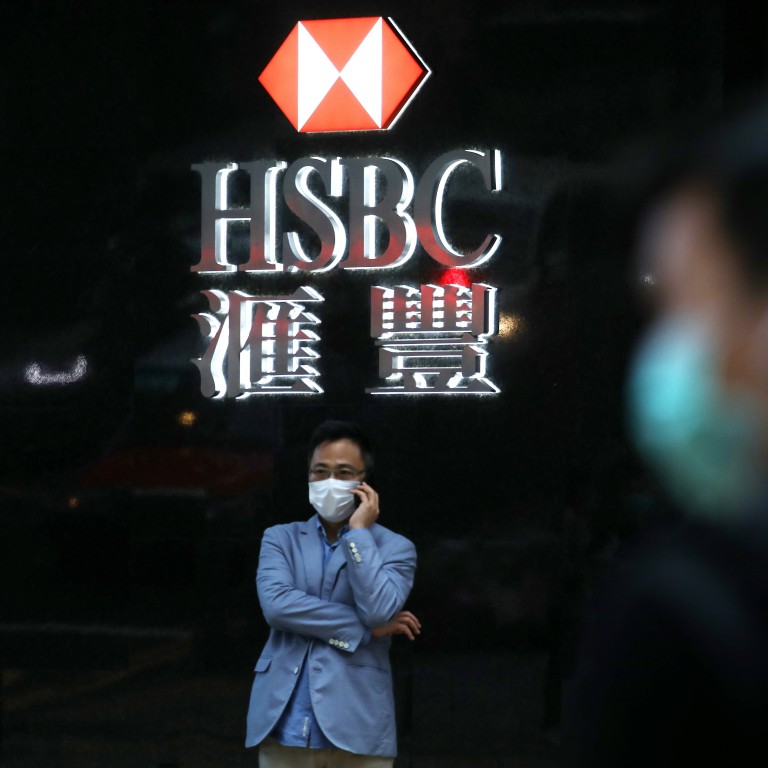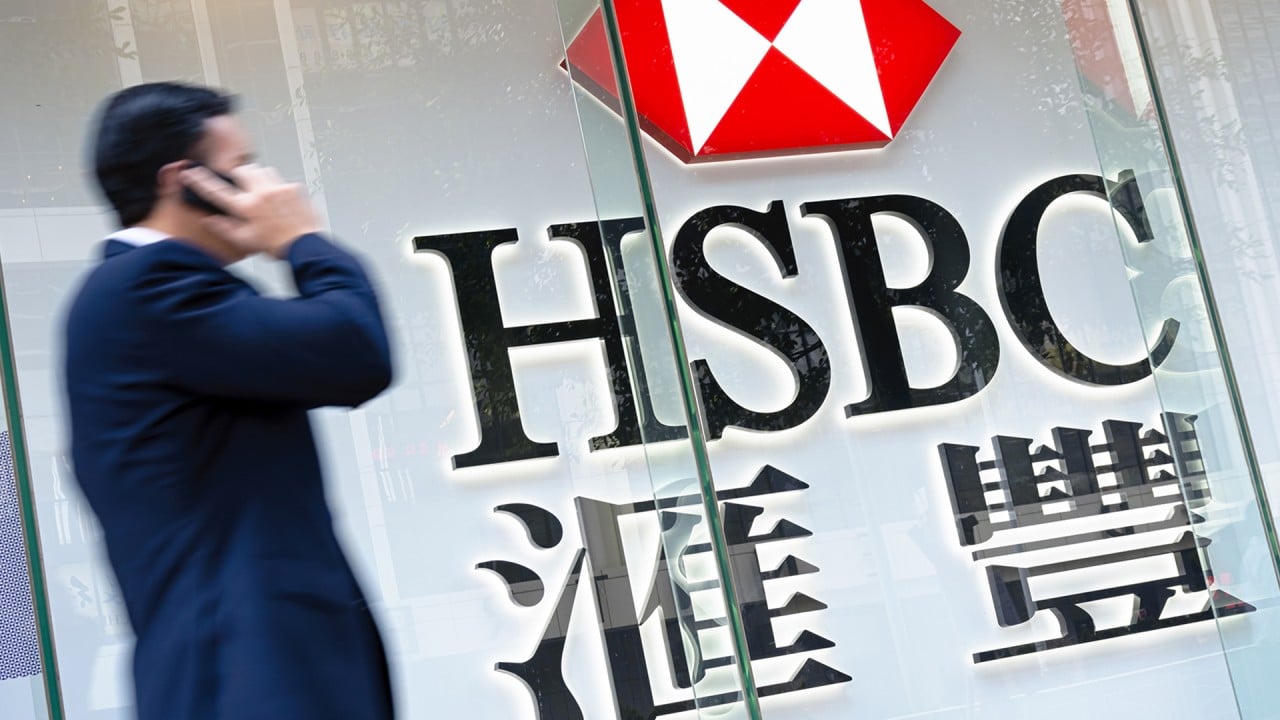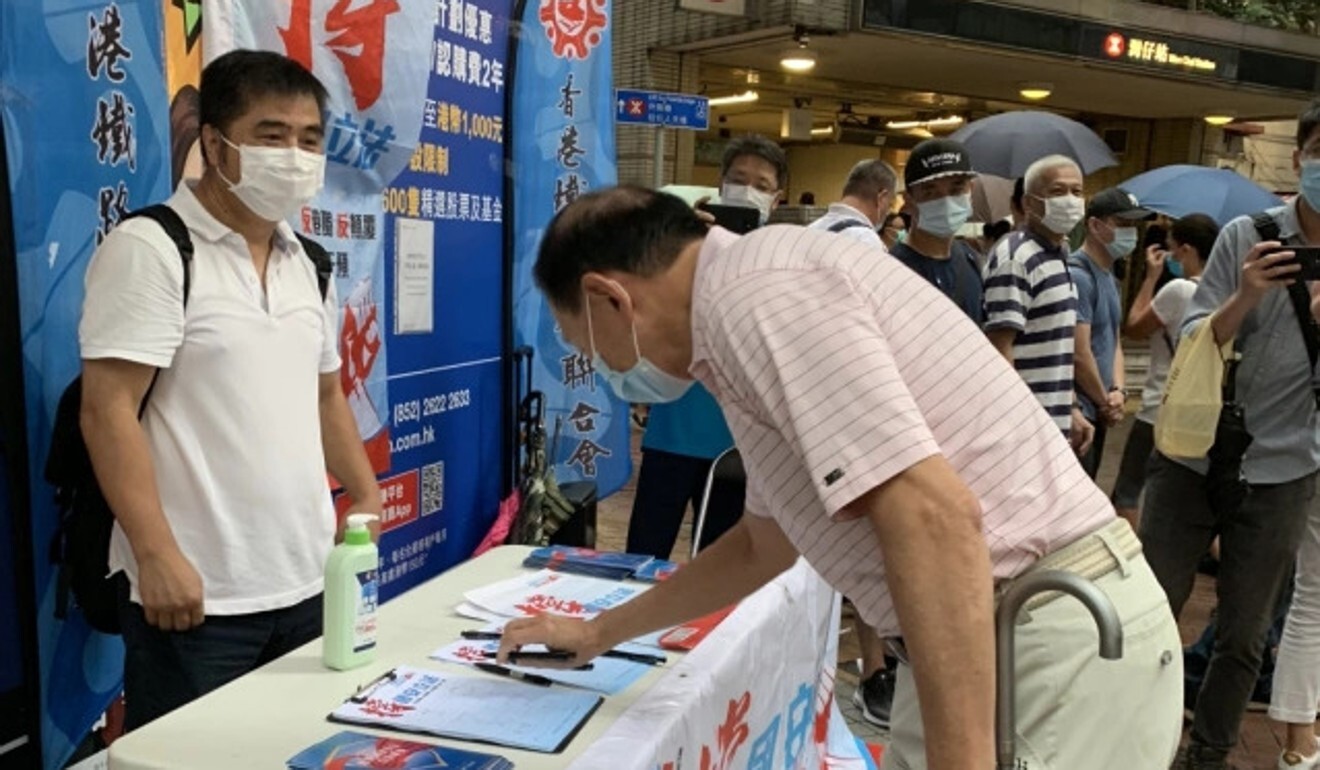
HSBC comes out fighting against ‘groundless’ rumours targeting its China business
- HSBC said it would continue to invest in its China business despite resumption of planned lay-offs globally
- Bank defends itself versus talk in mainland press it may be forced to exit China
After a series of attacks by Chinese media and netizens on HSBC's business culminating in one report suggesting it may be forced to exit the world's second-biggest economy, the bank came out swinging on Friday.
The London-headquartered bank pushed back against “groundless” rumours casting doubt over about the future of its mainland China business on social media platform WeChat after it announced this week it would resume 35,000 planned job cuts globally.
The bank, which is based in London, but generates most of its profit in Asia, said China remains “an important strategic market” for the bank and has been so for more than 150 years, noting it has been a “staunch supporter and active participant” in the country’s opening up over the past 40 years.
“Going forward, we will continue to invest in our China business, services, talents and technology. As always, we will continue contributing to the sustainable development of China’s economy,” the bank said in a post in Chinese on its official WeChat account.

04:41
HSBC doubles down on Asia in massive staffing overhaul
The bank, one of three lenders authorised to issue currency in Hong Kong, has been slammed by mainland media and netizens across China in the past 18 months over its involvement in a US inquiry into Huawei Technologies Company and for not immediately showing public support for a controversial national security law tailored for Hong Kong.
Global Times, a nationalistic tabloid affiliated with Communist Party mouthpiece People’s Daily, speculated this week that the bank’s resumption of planned job cuts as part of a massive restructuring “may mark the beginning of the end for the embattled British bank in China”.
The tabloid newspaper, which publishes both a Chinese and an English edition, on Wednesday also quoted an unnamed Beijing “observer” who said the bank could be pushed out of the mainland market over the Huawei situation.
Quinn has said the bank would shift capital from underperforming businesses in Europe and the US to growth markets, such as Hong Kong and mainland China. (Hong Kong and mainland China accounted for more than 100 per cent of its pre-tax profit last year).
HSBC did not name the Global Times in its statement on Friday.
In a June 4 commentary about HSBC’s support of the national security law, the Global Times said, “we still need to watch HSBC's moves in the future related to issues such as Huawei. There is a bottom line that HSBC can't cross, otherwise the bank could lose the China market.”
The bank was forced to go on a charm offensive in Beijing last summer after providing documents to US prosecutors in an investigation into the Chinese telecommunications company, which saw Huawei chief financial officer Meng Wanzhou arrested in Canada on US charges.

The bank also was criticised by former Hong Kong chief executive Leung Chun-ying on his Facebook page on May 29 for staying silent on the national security law for Hong Kong, which some fear could restrict free speech and other liberties in the city.
Lawmakers in the US and the UK have since criticised HSBC and its Hong Kong rival, Standard Chartered, expressing support for the law.
“We respect and support laws and regulations that will enable Hong Kong to recover and rebuild the economy and, at the same time, maintain the principle of ‘one country two systems’,” HSBC said in a carefully worded social media post. “We are fully committed to playing our part in supporting Hong Kong now and in the future.”
HSBC’s shares rose 0.67 per cent to close at HK$37.35 in Hong Kong on Friday.

